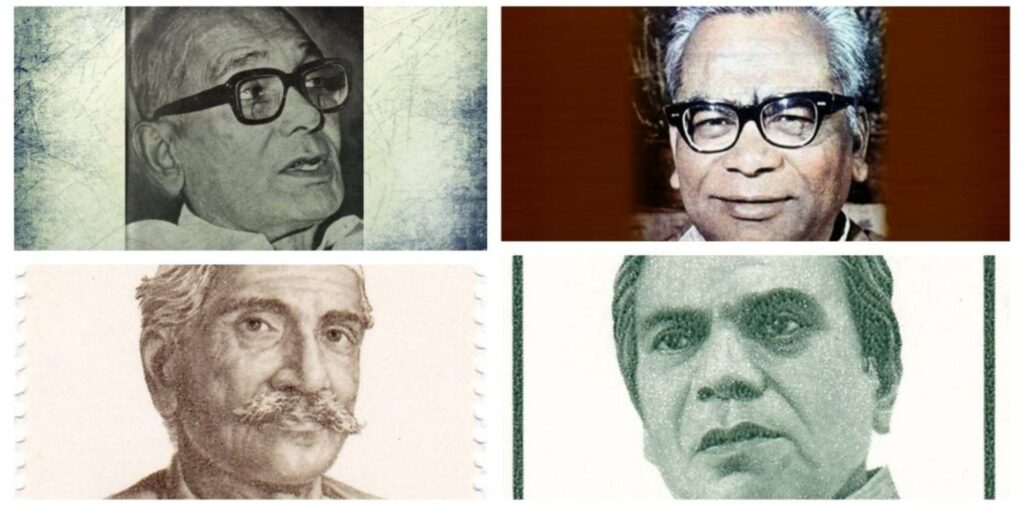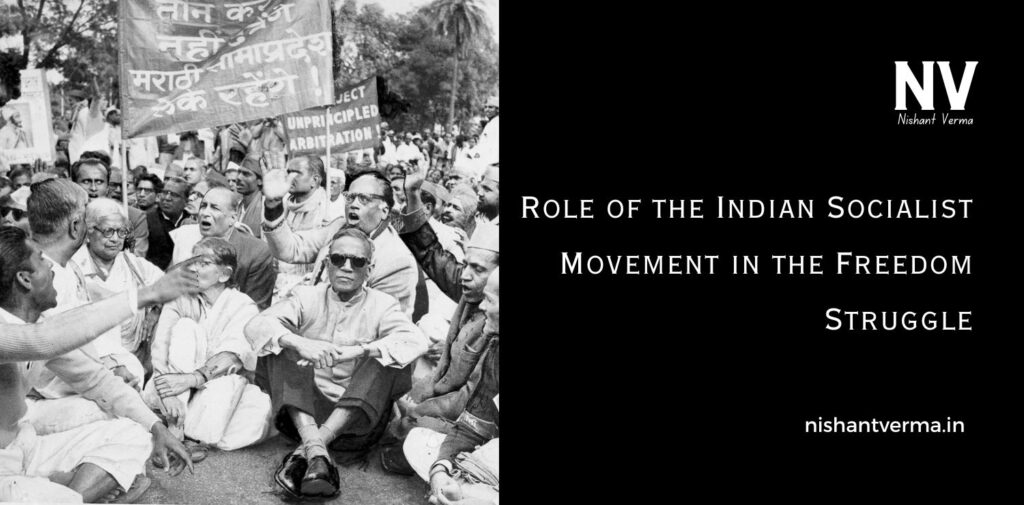India’s fight for freedom from British rule was not just about soldiers and leaders leading protests or marches. It was also about different groups of people coming together with new ideas on how to make India free. One such important group was the Indian Socialist Movement.
Socialists were people who believed in creating a society where everyone had equal rights, no one was poor, and everyone could live a better life. Their ideas about fairness and justice played a big role in India’s independence struggle. Let’s take a look at how the Indian Socialist Movement contributed to the fight for freedom in India.
What is Socialism?
Before we dive into the role of the socialist movement, let’s first understand what socialism means. Socialism is an idea that believes in equality and fairness for all people. Socialists want everyone to have access to education, healthcare, and jobs, regardless of their background or wealth.
They believe that no one should be richer or poorer than others, and everyone should get the same chances in life. The idea of socialism also focuses on the well-being of the working class – the farmers, workers, and laborers – who are often the poorest in society.

Early Roots of the Socialist Movement in India
The roots of socialism in India can be traced back to the early 20th century, when India was still under British rule. During this time, many Indian leaders and thinkers began to realize that simply demanding political freedom from the British was not enough. They also needed to change the social and economic systems that kept the poor people of India suffering.
Leaders like Lala Lajpat Rai, Jawaharlal Nehru, and Subhas Chandra Bose started talking about the importance of both political freedom and social equality. These leaders began to see that India needed to be free not just from British rule, but also from the systems that kept people poor and unequal.
The Formation of the Socialist Party
In 1934, a group of leaders, including Subhas Chandra Bose, decided to form the Indian National Congress Socialist Party. This party had the goal of creating a society where everyone was equal, and where the wealth of the country would be shared by all its people. The leaders of the socialist movement wanted to ensure that the poor and working-class people of India would not be ignored after independence.
One of the key leaders of the Indian Socialist Movement was Dr. Ram Manohar Lohia. Lohia was a strong supporter of socialism and believed that for India to become truly independent, it needed to focus on solving the problems of the poor and underprivileged. He worked hard to spread the ideas of socialism, and his efforts inspired many young people to join the fight for freedom.

How Socialism Influenced the Freedom Struggle
The Indian Socialist Movement had a huge impact on the Indian freedom struggle in many ways:
- Focus on the Poor and Working Class: While many leaders in the freedom struggle focused on getting rid of the British rulers, the socialists believed that India’s independence would not be complete until the poor people, farmers, and laborers were given better lives. They wanted to make sure that the wealth of the country was not only in the hands of the rich, but was shared with everyone.
- Social Justice and Equality: Socialists like Lohia and Jawaharlal Nehru pushed for equality for all, including women, Dalits (people from lower castes), and other marginalized groups. They wanted to make sure that everyone had access to education, healthcare, and good jobs. This focus on equality helped shape the ideas that would later become a part of India’s Constitution.
- The Idea of Complete Independence: Socialists believed in Purna Swaraj, or complete independence, from the British. They did not just want to end British rule, but they also wanted India to be free from social and economic problems like poverty and injustice. This was a new way of thinking about independence, and it helped motivate people to fight for both political and social freedom.
- Youth Involvement: The socialist movement attracted many young people who were eager to bring about change. Young men and women joined the socialist movement because they believed in a better and fairer India. They worked alongside the Congress Party, participating in protests, writing books and articles, and organizing meetings to spread socialist ideas.
Key Events in the Socialist Movement
Socialists did not just focus on talking about ideas. They also took part in important movements and struggles for India’s independence.
- The Quit India Movement: During the Quit India Movement in 1942, socialists played an important role in organizing protests against British rule. Even though the Congress Party had called for the Quit India Movement, the socialists pushed for greater focus on social and economic freedom for the people of India.
- The Royal Indian Navy Revolt: In 1946, when the Indian Navy mutinied against British rule, socialist leaders supported the sailors and workers who were demanding better treatment and independence. This event showed how the socialist movement worked alongside the labor movement to fight for the rights of common people.
Nehru and the Socialist Vision
One of the most famous leaders of the Indian Socialist Movement was Jawaharlal Nehru, who later became the first Prime Minister of India. Nehru was deeply influenced by socialist ideas. He believed that for India to truly be free, it had to be a place where everyone had equal opportunities, no matter their caste, religion, or wealth.
As Prime Minister, Nehru used his socialist ideas to create policies that helped improve the lives of poor people. He focused on building industries, creating jobs, and improving education and healthcare for everyone. Nehru’s vision of a socialist India helped shape the country’s future after independence.

Legacy of the Socialist Movement in India
Even after India gained independence in 1947, the ideas of the socialist movement continued to influence the country. Many of the ideas about economic fairness, social justice, and equality became part of India’s Constitution. Socialists worked to ensure that the Indian government would focus on helping the poor and improving the lives of working-class people.
Over time, the socialist movement split into different groups and political parties, but its impact was still felt. Leaders like Jayaprakash Narayan continued to push for a better, more just society, and the ideas of socialism helped shape the modern Indian state.
Conclusion – Role of the Indian Socialist Movement
The Indian Socialist Movement played an important role in the country’s fight for freedom from British rule. The socialists believed that true independence meant not just getting rid of the British, but also creating a society based on justice, equality, and fairness. They focused on the needs of the poor and working people, and they inspired many to join the freedom struggle.
The ideas of the socialist movement shaped India’s Constitution, its policies, and its future. Even today, we see the influence of those early socialist thinkers in India’s efforts to build a more just and equal society.
So, when we look back at India’s freedom struggle, we should remember that it wasn’t just about defeating the British. It was also about the dreams and hopes of people who wanted a better life for everyone, especially the poor and oppressed. The Indian Socialist Movement was a key part of making those dreams come true.




